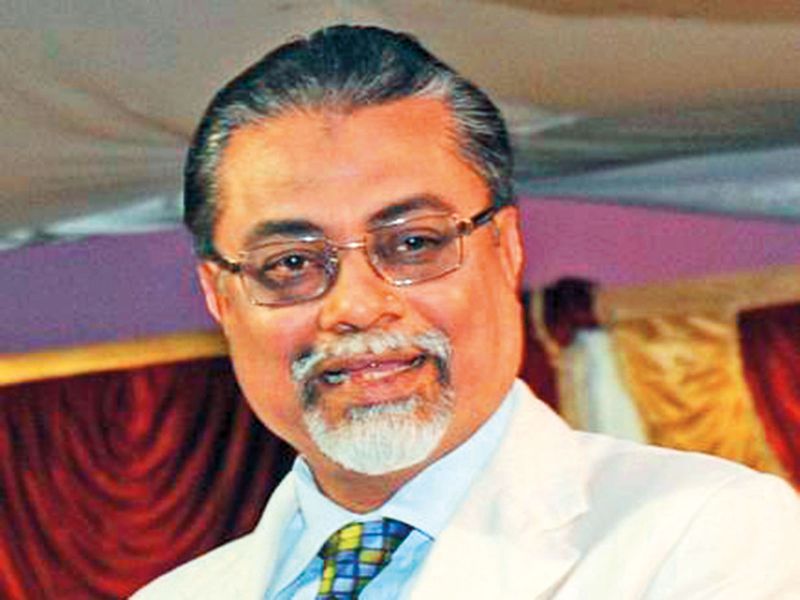_resources1_16a30b30b9c_medium.jpg)
Ayodhya: The Supreme Court has ordered time-bound meditation in the Ram-Janambhoomi-Babri Masjid title dispute case. Granting eight weeks time, the court has asked the three-member panel to submit its first status report within four weeks. The mediation process, to be held in Faizabad, Uttar Pradesh, will begin next week.
Headed by former Supreme Court Justice F.M. Kalifulla, other members of the panel are spiritual guru Sri Sri Ravi Shankar and mediation expert Sriram Panchu.
The Constitution bench, headed by Chief Justice of India Ranjan Gogoi and Justices S.A. Bobde, D.Y. Chandrachud, Ashok Bhushan and S. Abdul Nazeer, also ordered that mediation proceedings will remain confidential and media cannot publish details of the proceedings.
The much-awaited hearing was adjourned several times — from recusal to indisposition of judges, in the last many months. The 14 appeals against the Allahabad High Court’s 2010 judgement dividing Ayodhya’s 2.77 acres of land in Uttar Pradesh equally among Ram Lalla, Sunni Wakf Board and Nirmohi Akhara have been pending for nine years in the SC and seen many ups and downs.
While referring the matter for mediation, the bench said there is no legal impediment to send the matter for mediation for arriving at a possible settlement.
In Ayodhya, brushing off the decades-old dispute, both Hindus and Muslims said: “For us, it is not about mandir or masjid. We want Ayodhya to develop in terms of tourism and infrastructure, so that our city prospers.”
In Kotiya, very close to the disputed site, people wake up to the sounds of a hawker selling fruits and vegetables. Women surround the cart picking up items and haggling about prices.
_resources1_16a30b30cef_author.jpg)
For generations, we have attended each other’s family functions. Our Muslim brothers and sisters don’t share their insecurities with us, but we can sense their feelings ... whenever Hindu activists hold demonstrations.
The young vendor, Mahesh, says: “I buy vegetables from the mandi, without inquiring about the religion of the farmers. Whoever may have produced it, the vegetables look the same. My concern is to earn money, without bothering about a person’s religion or caste.”
At the residence of Iqbal Ansari — a petitioner in the Babri Masjid title suit — Ramesh Pandey, mahant (priest) of a neighbourhood temple greets him. Both sit on the steps outside his house exchanging pleasantries. Pandey warns, “However much politicians may try, no one can create a rift between Hindus and Muslims here.” Pointing at Ansari, he says, “Our families have lived in harmony for several generations; now our grandchildren play together.”
Ansari is the son of Hashim Ansari, who was associated with the Ayodhya title suit since 1961 when he, along with six others, was named the main plaintiff in the lawsuit Sunni Waqf Board filed in court of Faizabad civil judge. Despite contesting the case for decades, Hashim often spoke of an amicable settlement of the contentious issue.
Hashim had said, “If the issue is left to the people of Ayodhya, it can be sorted out. Politicians and politically motivated people, who have only been taking undue mileage out of the matter and are not interested in building the temple, should keep out of it.”
Hashim died in 2016 at the age of 96. His son follows the same paradigm.
Yearning for peace
Ansari says, “The matter is where it was when the Babri Masjid was demolished. Those who filed petitions have all died. We eagerly await a solution.”
Last year, in a show of strength, both the Vishva Hindu Parishad (VHP) and Shiv Sena had mounted pressure on Prime Minister Narendra Modi-led Bharatiya Janata Party (BJP) government, to announce a date for the temple’s construction. Rashtriya Swayamsevak Sangh (RSS) too embarked on a 10-day long ‘rath yatra’ in Delhi.
Don’t you think we have read the history. We are not concerned what Babur did in the past or who was the king and who invaded. We cannot undo what has happened but we can go into what exists in the present moment.
Commenting on the euphoria created across the country from time-to-time, Ansari says: “I feel concerned whenever there’s a gathering of activists in the city. They try to vitiate the atmosphere by chanting slogans unnecessarily. People of Ayodhya are fed up of all this now. I have said it several times before that I am not opposed to building the temple. If it brings peace and prosperity in the country, we are ready for it.”
“There has never been a fight here among Hindus and Muslims and not a single FIR filed against each other in any police station. We see tension only when outsiders visit and indulge in sloganeering. Even though mahants reassure us, and the administration constantly checks upon us, we do feel scared of strangers, as a single spark can cause a fire,” he adds.
No to outside intervention
Residents of Jalwanpura locality felt that but for the intervention of outsiders, the matter would have been resolved long back.
Haji Mahboob, a party in the Ram Janambhoomi-Babri Masjid case and President of Anjuman Mahafiz Masjid-Wa-Muqabir says, “There are numerous temples in Ayodhya; constructing one more will not affect us. But we expect responsible people to have a heart-to-heart talk with us.”
Over 7,000 small and big temples in Ayodhya cater to the visitors, mainly from rural areas. People visit the temples, halt at the ghats and return home. No hotel or decent restaurants exist.
Politicians create issues
“People are minting money doing politics in the name of Ram,” responds Mahant Dinendra Das, of Nirmohi Akhada. “By saying, ‘we’ will build the temple; they are only interfering, not working to resolve the issue. The property is ours and we do not have any issues with Muslims; only with politicians,” he states.
The frenzy of the past is waning as the years go by. Both communities continue to contribute to the local economy. While Muslim men and women residing in areas around the disputed complex make and sell garlands for temples, men from the Hindu community run tea shops and other establishments that serves all.
The three members of the Mediation panel
The Supreme Court (SC) yesterday appointed Justice (retired) Fakkir Mohammad Ebrahim Kalifulla as the head of the mediation panel, which includes spiritual leader Sri Sri Ravi Shankar and mediation expert Sriram Panchu, who will report to SC with results of their mediation efforts on May 15.
Fakkir M. Kalifulla

Son of late Justice M Fakkir Mohammad, Kalifulla was born on July 23, 1951, in Karaikudi village of Tamil Nadu’s Sivagangai district. He enrolled as an advocate on August 20, 1975, after which he began practising labour law in the law firm TS Gopalan & Company. On March 2, 2000, he was appointed as a judge of Madras High Court (HC).
In February 2011, he became a member of Jammu and Kashmir (J&K) HC and was appointed to serve as the acting Chief Justice two months later. In September 2011, he was named as the Chief Justice of J&K HC. On April 2, 2012, he was elevated to SC.
Kalifulla has delivered several landmark verdicts. One important case related to introduction of Vedic astrology as a course of scientific study in Indian universities. Kalifulla was instrumental in giving it the top court’s seal of approval.
Another significant case pertained to elections of Chennai City Corporation. He held that the election in respect to 99 wards of the Corporation was liable to be set aside.
He retired from the apex court on July 22, 2016.
After his appointment as mediator by SC on Friday, Kalifulla said, “I understand the Supreme Court has appointed a mediation committee headed by me. I am yet to receive the order copy. I can say if a committee has been constituted, we will make every effort to resolve the issue amicably.”
Sriram Panchu
_resources1_16a30b30cd2_original-ratio.jpg)
Sriram Panchu is a senior advocate based in Chennai, who has a reputation of being a world-class mediator. Founder of India’s first court-annexed mediation centre — ‘The Mediation Chambers’ — he played a key role in making mediation a part of the country’s legal system.
He is the president of Association of Indian Mediators and a director on the board of International Mediation Institute (IMI).
Panchu has mediated a large number of complex cases across the range of commercial, corporate and contractual disputes. He was appointed by apex Supreme Court to mediate a 500-square-km dispute between Assam and Nagaland, and another public dispute involving the Parsi community in Mumbai.
Sri Sri Ravi Shankar
_resources1_16a30b30cef_original-ratio.jpg)
Sri Sri Ravi Shankar is a spiritual guru, who has been leading a worldwide movement for a violence-free society. Born on May 13, 1956, Ravi Shankar founded the ‘Art of Living’ Foundation in 1981, a volunteer-based non governmental organisation (NGO) providing social support to the people.
Later in 1997, he established ‘International Association for Human Values’, another NGO that specialised in rural development and relief work.
In 2004, Ravi Shankar visited Pakistan on a “goodwill mission” and again in 2012 when he inaugurated ‘Art of Living’ centres in Islamabad and Karachi. The Islamabad centre was burnt down by militants in March 2014.
He believes that spirituality is that which enhances human values such as love, compassion and enthusiasm. It is not limited to any one religion or culture.
He has been advocating constructive dialogue between the opposing parties on Ayodhya issue. On Friday, he took to Twitter and said, “respecting everyone, turning dreams to reality, ending long-standing conflicts happily and maintaining harmony in society — we must all move together towards these goals.”








